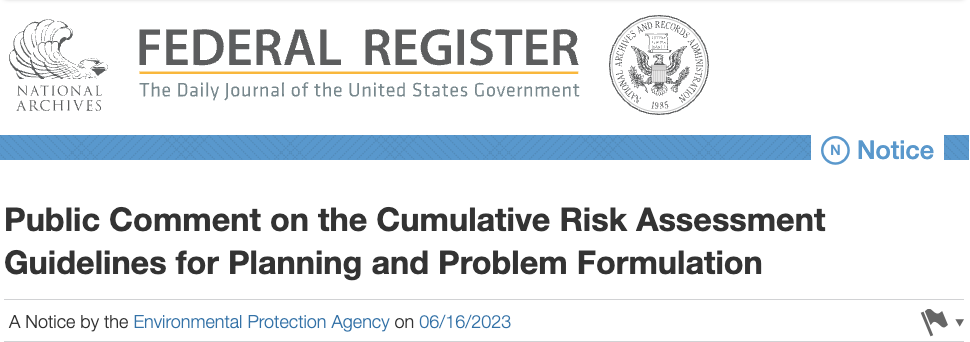
The EPA released draft Guidelines for Cumulative Risk Assessment Planning and Problem Formulation last year. This is a crucial step for the agency to meaningfully examine and address compounding environmental risks as part of a larger picture on human health and environmental justice. Nonetheless, there are several major concerns.
Below are key points addressed in EDGI’s response:
(1) The complexities inherent with multiple combined exposures and compounding stressors have driven the need for Cumulative Risk Assessments (CRA’s). However, the EPA’s draft guidelines suggest that environmental justice communities may be passed over if they are deemed too complex. This contradicts the whole purpose of CRA’s, which is to better protect health and promote equity. The EPA suggests Cumulative Impacts Assessments (CIA) are better equipped for these complex cases instead, yet there is currently no guideline or framework for CIA’s so this “alternative” rings hollow. Rather than allowing the dismissal of communities burdened with extensive and complicated exposures, the EPA needs to provide concrete guidance on how to evaluate and address these harmful stressors.
(2) The draft guidelines vaguely describe ‘unacceptable levels of uncertainty’ for studying the relationships between stressor, exposure, and response in complex situations – like those found in environmental justice communities. Without any mention of what constitutes acceptable levels of uncertainty, the guidelines leave room for loopholes and pushback against the CRA process entirely. Moreover, they exploit fundamental concepts of scientific uncertainty and data limitations. The guidelines should provide structure around what levels of uncertainty, as well as what data and methods, are recommended for investigation.
(3) The EPA implies ways to narrow down and scale back cumulative risk assessments, which are meant to be broad and expansive. This is falling back on a flawed design, and the agency will lose on the potential benefits of understanding how to better protect human health.
Read EDGI’s full public comment below:
